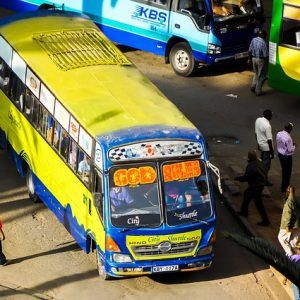By Gracia Chila Malowa
What is Kenya’s biggest problem today?
Stop any common Mwananchi on the street today and ask them this question. You will receive a myriad of answers. Corruption. Unemployment. Tribalism. Crime. Food Shortages. The collapse of our Health and Education sectors. A Political Elite that is more and more obsessed with its own advancement and has dropped all pretense of showing the slightest care for the general well-being of the country.
Government after government has tried (halfheartedly but with ostentatious fanfare) to resolve this sad state of affairs. But nothing they have done has changed the fact that the standard of living of the average Kenyan is significantly worse now than it was over half a century ago when we gained independence from the British.
Kenyans themselves appear unwilling to break this cycle. Every five years, they troop to the ballot box and vote unsavoury individuals into office. As a result, every other day there are fresh scandals splashed all over the media of a variety of crimes high ranking leaders are involved in and suspected of ranging from the theft of billions of shillings from public coffers to narcotics trafficking, murder and rape.
In a way, all these problems are interconnected.
But what is at their root?
In my opinion, it is ignorance. Many would scoff at this assertion; Kenya has been lauded by the World Bank and the World Economic Forum as having one of the best education systems in Africa. Kenyans are therefore arguably the best-educated people on the continent.
Except for one thing.
Kenyans born in 2004 will be eligible voters for the 2022 General Election. A majority of them know little of their country’s political history. They know nothing of the betrayal after the independence of the Kenyan people by the political elite who entrenched corruption and tribalism, the 24-year despotic regime of Daniel Moi that plundered state coffers so thoroughly the Kenyan economy has never recovered, the struggles for democracy that culminated in the 1992 repeal of the much-detested Section 2A of the Kenyan constitution, the ethnic clashes in the 90s and in the 2007-2008 post-election crisis that brought Kenya to the brink of civil war; a crisis whose instigators still walk free.
This tumultuous history is glossed over, most likely intentionally, by the curriculum. In so doing a basic truth is ignored – Those who fail to learn from history are doomed to repeat it.
Civic education and engagement are directly impacted by this ignorance. Voters, unaware of the events that have led us to this point, fail to connect the dots, see patterns, and draw parallels.
This ignorance is a plague that has permeated every section of Kenyan society and has spread its rot. Soon enough, if nothing is done about it, the whole structure will come crumbling down.
So, what is the cure?
If somehow, I won the mandate to govern the people of Kenya, and if I was serious about effecting change, this is where I would begin. Educational expansion has been done before in Kenya, and successfully. In 1963, the Government of the newly independent Republic of Kenya embarked on a massive undertaking to improve literacy and education rates, providing free primary education for the first four years of primary school. As a result, four-fifths of the Kenyan population are literate and have gone through at least some levels of primary level education.
A similar project with a focus on the teaching of Kenyan history, seeking to draw wisdom from the past and use it to illuminate the present, would likely go a long way in fixing Kenya’s problems. Such a project would involve greater funding of university History and Literature departments, encouraging research into the past, and funding of historically themed theatre, cinema, and books.
Perhaps if young Kenyans understood the great potential their country once had and what it still could be, they would be less willing to vote incompetent, greedy thugs into office.
Perhaps if young Kenyans understood that ethnicity is and has always been a fluid concept, that even some Kenyan tribes are literally a creation of the British who sought to ease their rule by dividing the indigenous population, they would balk at tales of militias being deployed to murder members of other tribes. Perhaps they would think twice before making unsympathetic statements when state power is deployed against members of other tribes and policemen gun down their young men in the streets.
Learning our history will encourage a deeper understanding of difference. Understanding how our ancestors interacted, in both good and bad ways, will be the key to help us re-imagine how to improve the future.
It’s a mistake that we pay for every day to assume that history is simply made up of tales from long ago with no direct relevance to our lives today. No progress can be made if we do not know where we’re coming from.
***
Gracia Chila Malowa is a Nairobi-based Lawyer with a borderline obsessive love for History, Literature and Geopolitics.





